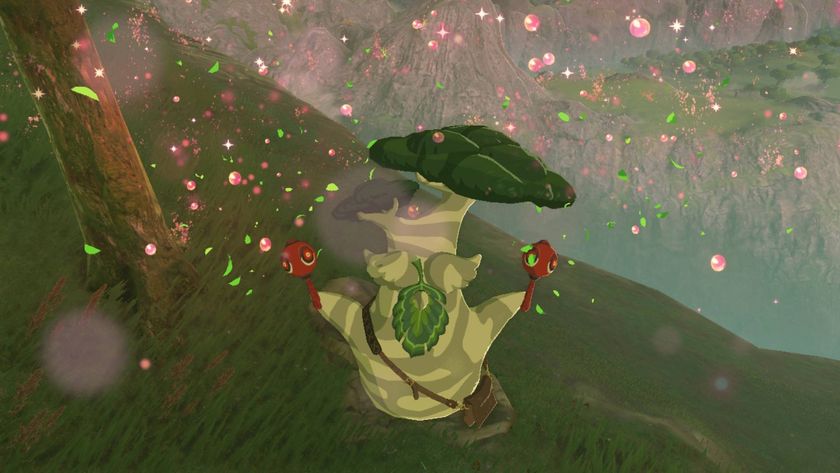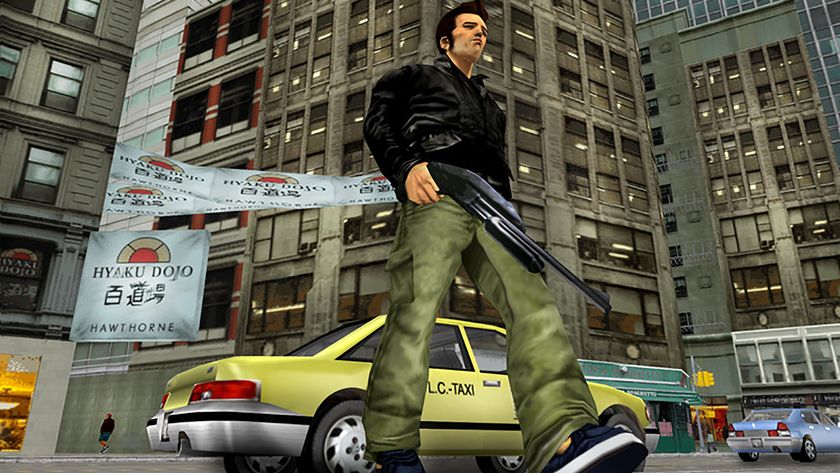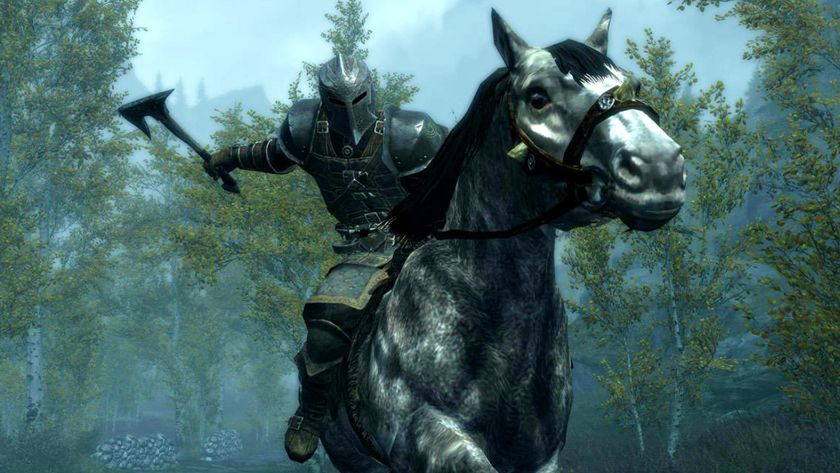Global Agenda
Lasers, energy katanas, and espionage aplenty in this 'spy-fi' shooter MMO
In our perfect world, everyone wears a jetpack. Like rainbow sprinkles, they tend to improve anything they’re attached to, and that includes shooters - just ask the 30-foot war obelisk we’ve commissioned to commemorate Starsiege: Tribes.
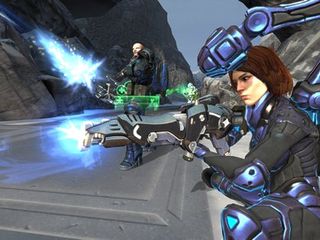
When we touch down in the testing area at Hi-Rez Studios, 15 high school students are jetpacking about in a 10-on-10 match - screaming taunts, strategizing, dropping force fields and sticky mines, hurrying to deploy turrets. It’s a loud little LAN at the independent dev, but Erez Goren doesn’t mind the ruckus - the self-made software entrepreneur has dropped more than 20 of his own millions to get Global Agenda off the ground. He’s the lead designer of his own dream project, one influenced by his affection for City of Heroes and a hundred-hour investment in each of Team Fortress 2’s character classes (yes, even the Scout). In one brief skirmish, we’re seeing a kind of TF2 with lasers, even a second coming of PlanetSide on a smaller scale.
We roll onto a capture point with our sneaky recon class character, decloaking behind a medic (who’s tethered his heal ray to a minigunning assault class) to take a slash with our katana, felling the medic in three swipes before a missile turret blasts us down. Sound familiar, TF2 vets? Gameplay straddles a kinetic and cooperative feel - in a given round, we’d cycle our weapons to fit the situation (like using a thermal grenade launcher when we stumble on a group of enemies), protect a turret-building teammate so he can hold the middle of the map, dish out heaps of splash-damage, and hover through vast vertical space.
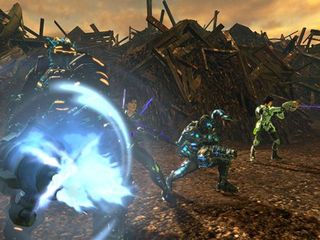
Where’s the MMO meat? The massive aspects (sci-fi styled lobbies, PvE missions, training areas) are more in place to frame your matches and create persistency within a player-driven space. Character customization (most of it stylized, some of it quirky, like holiday-themed reindeer antlers) and other MMO vitals are here, too, but for a flagship feature, Hi-Rez is introducing a month-long PvP alliance campaign that agencies (GA’s player-formed guilds) compete in simultaneously. On a macro level, it looks like a board game - each agency is allotted its own map of hexes that they develop by terraforming territory and building structures that earn resources or add defensive buffs once you’re in combat. Week-to-week, other agencies target individual hexes to attack, which each represent a map instance for scheduling a match. Lose the match, you’ll need to rebuild that area - you’ll do better if you’re able to build a safe border of structures to surround your HQ.
On-screen, Hi-Rez’s tweaks to the Unreal 3 engine look good - neon-hued weapon effects and shiny suits slot well with bright environments. Otherwise, we loved one game mechanic in particular: the power pool that anchors your actions. Rocket launchers and other weapons don’t use ammo, they pull from a shared battery used by your jetpack and other items, meaning you always have a sense of your combat capability as it drains and restores.
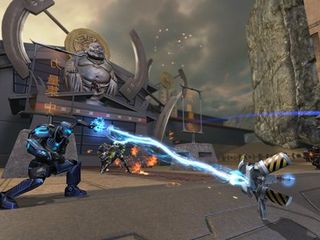
Although a shooter-MMO has yet to find lasting success on any platform, Global Agenda - which repackages the fond, familiar cooperative and mobile combat of TF2 and Tribes with layers of MMO goodness - seems as sound a candidate as we might get this year. Look for the beta to drop during second quarter preceding a year-end release.

+ A promising genre hybrid with a fundamental focus on action over slow-paced MMO conventions. Refreshing character design; abilities like super-leaping, flight, and invisibility made us feel like a sci-fi supersoldier.
– Being light on lore and mission content, a good part of GA’s experience will rely on player conflict to keep it interesting.
Sign up to the 12DOVE Newsletter
Weekly digests, tales from the communities you love, and more
Mar 9, 2009
